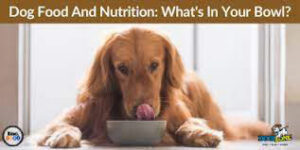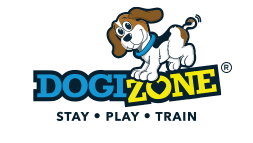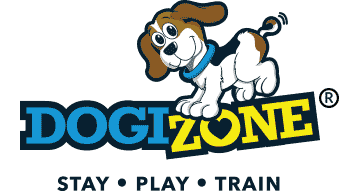Dog Food And Nutrition: What’s In Your Bowl?
There is a lot of different information online about the best types of dog food. However, dogs, just like people, all have different needs. These nutritional needs for dogs vary based on age, health issues, and any type of allergies or sensitivities to ingredients a dog may have. 
Ideally, dog owners should avoid dog food that is highly processed. Cheap quality kibble, canned food or even semi-moist food pouches have more fillers and cheap ingredients which have limited if any nutritional value. At the same time, many of these ingredients are by-products and meals, which are low in nutrients but high in bulking action.
Problem Ingredients
Dogs and puppies can have allergies or sensitivities to many ingredients in dog foods. The most common signs of allergies are scratching, licking of the feet, ear infections, diarrhea, gas, and problems with the skin and coat.
The most common sources of sensitivities and allergies include beef, egg, chicken, lamb, wheat, dairy, and other protein sources such as fish or pork. As a general statement, most dogs with these types of allergic reactions have problems with more than one ingredient.
An elimination diet that starts with switching the dog to a completely new food. Your vet can recommend a specific diet for your dog based on his or her size and age. Gradually adding in items and watching for a reaction allows the owner to identify the problem ingredients and eliminate them from the diet.
Keep in mind, diets trigger food allergies, but it is usually a genetic component and not a result of feeding a quality diet.
Puppy Nutrition
Puppies are growing, so they need a protein-rich diet that includes essential vitamins and minerals. Puppies and dogs are not strict carnivores, and most enjoy small amounts of grains, fruit, and vegetables.
It is important to feed puppies enough food to fuel their growth. Large and giant breed puppies should be carefully monitored and on a controlled diet to prevent sudden growth spurts that can lead to musculoskeletal problems as they get older.
Feeding puppies four times a day to four months, and then three times a day to six months is highly recommended. After that, small to medium dogs can typically step down to a twice a day feeding schedule from 8 to 12 months, with larger breeds delaying this until a year and a half or more.
Dog Nutrition
Work with your vet on the best, balanced nutrition for your dog as he or she ages. Older dogs burn less calories and tend to gain weight unless the diet is adjusted. There are even weight loss foods for adult dogs, which offer a lower overall protein level for a less active lifestyle.
If making your own dog food at home, or when feeding a BARF (raw food) diet, it is essential to use a formula that provides all the nutrients your dog needs. Simply feeding raw bones and meat will not provide a sound nutritional level for any dog. Talk to your vet or work with a holistic animal nutritionist to provide a comprehensive, complete, homemade food for your dog.

